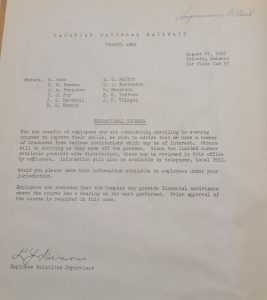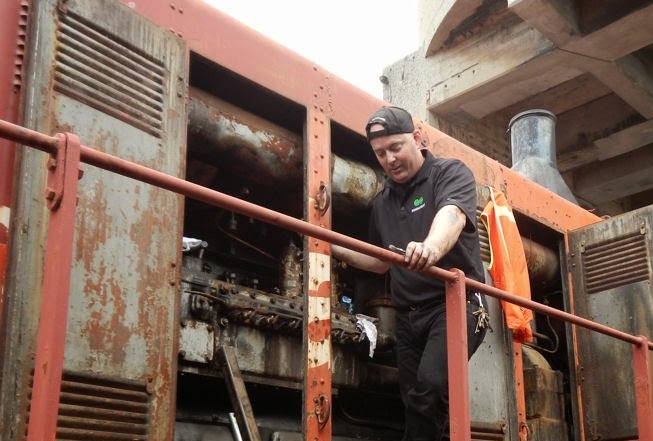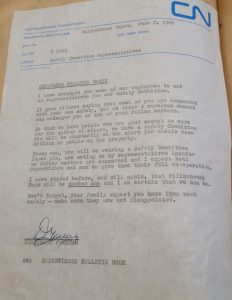Man on the GO: Chris Fox

Before Bombardier, Canadian National (CN) provided the workers for GO Transit. As seen in this 1967 memo, the companies operating GO Transit put emphasis on worker education.
The last railway worker we wish to present to you is probably the one you would think of first – the driver of the train! Chris Fox is one of those, but drivers in the railway industry are called engineers, or commonly known amongst themselves as hoggers. There are many debates on where the term “hoggers” comes from, but it may come from the pig-like appearance of the locomotives. Chris is an engineer for GO Transit, a commuter rail service serving Toronto and southern Ontario. While the trains are usually called GO trains by riders, Chris works for Bombardier, the contractor providing maintenance and operational services to GO Transit.
Before Chris became an engineer in 2015, he played many other roles on the railway. First, he was a mechanic in the GO Transit Willowbrook Maintenance Facility. After, until 2011, he was a conductor, where his role was to ensure everyone was safe on the train.

Chris Fox at work at the Toronto Railway Museum in 2014.
Work Life Balance. Enjoy this audio clip with an English transcription.
A Day in the Life of an Engineer
For Chris, a typical workday starts at 3:30 a.m. when his alarm goes off. Chris’s train is scheduled to leave Hamilton at 5:48 a.m., but he must be there earlier to check his paperwork. His train is the first to leave Hamilton each morning, but there are three more trains after his train, and he ensures the paperwork is in order for the later trains.

This 1967 internal memo shows workers were involved in a Safety Committee at Willowbrook Depot, demonstrating the importance of safety in the early days of GO Transit.
This paperwork is very important, and he is required to initial every page and sign the paperwork every day. These documents tell Chris if there are any problems on the tracks. The engineers need to know if they need to slow down in any areas, if there are any maintenance crews on the tracks or if a crossing gate is out of service. He also has a job briefing with the crew working on the train, so everyone knows what they are supposed to do.
Split Shift
Chris brings his morning train into Union Station. Once it is parked, he goes on a long break, usually about three hours. It is called a split shift. Once that break is over, it is time to go home. Chris checks his paperwork again and talks to the crew who drove the train during his break. His crew has another job briefing in the cab before Chris drives the train east to Oshawa. Finally, they bring their train all the way west to Hamilton. He parks the train at about 6 p.m., and his day is over. Chris makes sure to go to bed early, as he will be up at 3:30 am the next day to do the same thing all over again.

